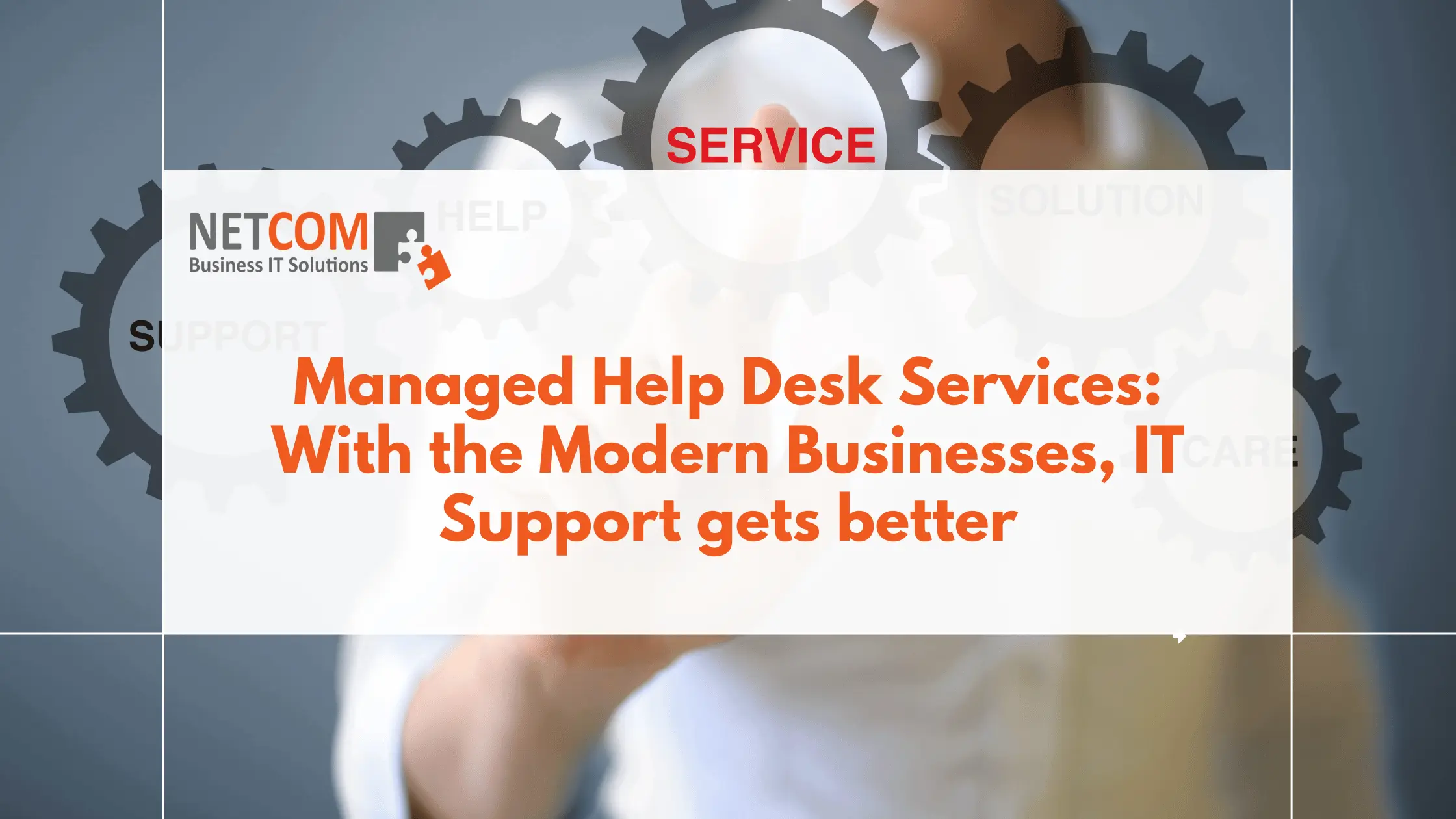Introduction
In this modern digital world that has become fast-paced, businesses have been majoring on technology to ensure that their operations run steadily. Whether it is communication tools or cloud application, all the department relies on IT infrastructure to carry out effectively. The technical problems, however, can lead to a lot of downtime and influence the productivity, when technical issues occur, but it may be software glitches, password reset, or some connection problems. This is where managed help desk services are involved. Outsourcing the IT support to a specialized provider will enable organizations to guarantee the rapid solution of problems, enhance efficiency, and save money, not to mention a high rate of employee satisfaction.
What Are Managed Help Desk Services?
Managed help desk services refer to the services that are outsourced as solutions to IT support and is used to cover the broad spectrum of technical problems associated with businesses. Rather than having an in-house IT department only, firms can engage a managed service provider (MSP) to provide 24/7 technical support, be it remotely or locally. Such services are the support tickets, troubleshooting system errors, user accounts, monitoring systems and adherence to IT best practices.
Essentially, a managed help desk serves as a point of contact where employees seek the assistance of any problem and get solutions in time.
Important Advantages of Managed Help Desk Services
24/7 Availability
Contrary to in-house teams that generally work within the normal business hours, the managed help desk services usually offer 24-hour assistance. This guarantees that international teams, remote employees and important business processes are not left behind in spite of time zones.
Better Efficiency and Productivity.
By fixing technical problems promptly, the employees will be able to work on their main duties without spending time on unjustified downtimes. MSPs have well-organized workflows and automation of ticketing systems to reduce intersection issues and disruptions.
Cost Savings
It may be costly to employ and train a complete in-house IT support staff. Managed help desk services can help provide a cost-efficient solution through providing scalable pricing models that meet business requirements. Only the required amount of service is paid, and this saves overhead expenses to companies.
Access to Expertise
The managed service providers hire qualified experts whose competence level is high in various fields- cloud computing, cybersecurity, networking, and enterprise software. Companies also receive access to a source of talent without having to pay the individual expenses.
Scalability and Flexibility.
With the expansion of a business, the complexity of I.T. too increases. The managed help desk services are able to scale the support to higher levels or lower levels as per the requirements of an organization. The service is flexible when it comes to a small business or a large corporation.
Data Protection and Data Security.
Managed help desk vendors have a good reputation and have stringent security measures to uphold sensitive information. They also assist the companies to remain within the regulations of the law GDPR, HIPAA, or a specific company, minimizing the possibility of fines.
Managed Help Desk Service
It usually starts with the support request which is made by an employee either by phone, email, chat, or even by a ticketing portal. The help desk team then:
Logs the Request – Making a ticket with the description of the problem.
Categorizes and Prioritizes – Finds the urgency and impact.
Troubleshoots and Resolves – Remote access tools or showing the user how.
Sending to Specialized IT – Requesting complicated problems to be resolved by specialized IT teams.
Finalizes the Ticket – Making sure that the user is content with the resolution.
This organised way of doing things is accountable, transparent, and resolves problems effectively.
Managed Help Desk Service Types
Tier 1 Support – Tier 1 is a support level that supports basic tasks such as password resets, software installation, or straight-forward troubleshooting.
Tier 2 Support – Handles more technical issues that need specialized knowledge like system malfunctions or programme crashes.
Tier 3 Support – It seeks the assistance of the specialized engineers in case of complex IT issues, such as the network outages or the cybersecurity threats.
Knowledge Bases and FAQs – A number of providers provide knowledge bases and frequently asked questions, thereby giving employees the capability to resolve minor problems on their own.
The reason why Businesses should invest in Managed Help Desk services
Remote Workforce Support – Hybrid and remote work is becoming the new standard of business, and managed help desks provide employees with quality IT support when they are away.
Customer Satisfaction- An improvement in the speed of resolution will enhance internal employee experience, which will be passed onto customer service.
Flexible IT Infrastructure – Managed help desk supports the process of digital transformation as business enterprises move towards cloud technology and newer systems.
Business Continuity – Should the unexpected IT outages occur, the managed help desk will make sure that operations are restored promptly with minimum damage.
The Right Managed Help Desk Provider
In choosing a managed help desk service, the businesses should take note of:
Experience and Certifications – Find providers who are experienced and have industry-accredited certifications.
Response Times (SLAs) – The provider should ensure that he or she has fast response time.
Plans that can be customized – Flexibility in services can be used to customize support to business needs.
Security Standards – The provider must be in conformance with high security measures.
Scalability – Select a provider that is scalable to your business.
Conclusion
Modern organizations rely on technology, and in-house management of IT problems may consume resources and minimize the productivity. Managed help desk services offer a strategic solution, as they offer cost effective, scalable and expert based services. Outsourcing IT support services to reliable companies does not only enable companies to improve the efficiency of their operations but also provides companies with a sense of security that their systems are in reliable hands.
With the ever-changing digital transformation, managed help desk services have ceased to be a luxury; it has become a business need, particularly when businesses strive to keep afloat and competitive in the current technology-driven world.






